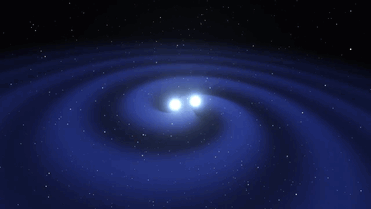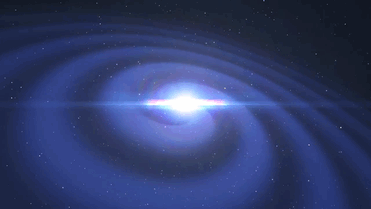Lunar Shadow
Lunar Shadow

Picture of the Day - October 14, 2018
Small satellite casting its shadow across a gas giant.
More Posts from Sharkspaceengine and Others




My first posts will be from systems located within the Triangulum Galaxy. The above 3 images were taken from Space Engine of the galaxy. The background galaxy in the images is Andromeda.
For those of you that are not familiar with the Triangulum Galaxy, it is the third largest member of the local group, sometimes considered a satellite galaxy of Andromeda. The galaxy is also known as M33, NGC 598 or the Pinwheel Galaxy. Approximately 40 billion stars reside within this spiral galaxy. It is believed that the galaxy lacks a central supermassive black hole and central halo.
Wikipedia link below.
Triangulum Galaxy






My last post of planets in the Triangulum galaxy, a ringed world montage. And all these planets were found in one star system.
I have not decided which galaxy I am going to visit next, but I will left you know in the next day or so.
Space Engine System ID: RS 1229-118-6-214335-274
High Resolution Pictures
Ice Giant
Colorful Ice Giant
Cold Helium Gas Giant
Super-Earth
Ice World
Earth-like planet with life.
What would cause two stars to collide? What does it take for a whole planet (as massive as Jupiter) to change trajectory?
The main mechanism that would make two stars collide is gravity. This depends on several factors, some stars may wander through space and end up being attracted by the gravitational field of another star, from there, one star begins to orbit the other.

But the most common are collisions in clusters of stars, because in a star cluster the stars are very close together, especially in globular clusters.

Collisions of young stars may also occur, as most of the stars are born close to each other in clusters. Many stars are binary, formed together, but in some cases before they evolve they may end up colliding.

In the universe both collisions of active stars can occur, as can collisions of white dwarfs, neutron stars and black holes.


The orbits of the planets are determined by the gravitational pull of the Sun, so it would need some very extreme force to cause the orbit of a planet to change its trajectory, perhaps if some planet or star enters our solar system, or when the Sun goes through changes and become a white dwarf in about 5 billion years.






Triangulum Log - Post 4 - Vista System (Planet 2)
Here we come across the system’s second planet, a warm desert world. This rocky world orbits 0.41 AU from the sun and has a mass roughly one fifth that of Earth. It is a hot world covered in a thin Carbon Dioxide/ Sulfur Dioxide atmosphere with one tenth the atmospheric pressure of Earth. The planet is tidally locked to the sun and has an average surface temperature of 231° F on the day-side.
High Resolution Pics
Image 1
Image 2
Image 3
Image 4
Image 5
Image 6
Lunar Rings


Pictures of the Day - October 21, 2018
Normally, giant planets are the ones with rings, but in some situations a moon of a gas giant can have its own rings. Here we come across such a satellite.

Picture of the Day - January 15, 2019
Titan-like world with methane oceans and clouds of hydrocarbons.
Battered Desert

Picture of the day - November 5, 2018
A cratered desert world with a thin carbon dioxide atmosphere. Both heavily cratered combined with extensive surface modification from volcanism and other forms of geological activity. Evidence of a tectonic fault-line is present in the above image.
Approaching Eclipse

Picture of the Day 2 - October 30, 2018
The approaching shadow of an eclipse across an alien desert.

The shadow of a moon's eclipse is visible across this gas giant’s rings.
My Space Engine Adventures, also any space related topic or news. www.spaceengine.org to download space engine. The game is free by the way. Please feel free to ask me anything, provide suggestions on systems to visit or post any space related topic.Check out my other blog https://bunsandsharks.tumblr.com for rabbit and shark blog.
294 posts
![Purple Matter [500 X 750] By Skratt](https://64.media.tumblr.com/51a0374610bfbc488c77e06e4caa581f/tumblr_pfo1ajoUYD1wf4hhqo1_500.jpg)